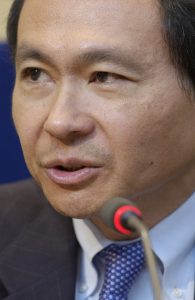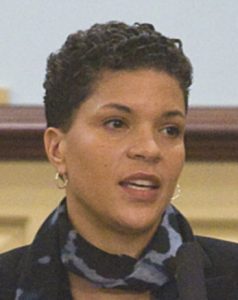
This is part of the DR Book Collection.
According to Amazon, Sapiens: A Brief History of Humankind is a best-seller. It’s not hard to see why. This deeply interesting book is also a deeply flawed book, and all of the flaws are calculated to make the book more sensationalist and provocative than the underlying research truly allows.
First of all, Harari is all-in for the hypothesis that the Agricultural Revolution was a colossal mistake. This is not a new idea. I’ve come across it several times, and when I did a quick Google search just now I found a 1987 article by Jared Diamond with the subtle title: The Worst Mistake in the History of the Human Race. Diamond’s argument then is as silly as Harari’s argument is now, and it boils down to this: life as a hunter-gatherer is easy. Farming is hard. Ergo, the Agricultural Revolution was a bad deal. If we’d all stuck around being hunter-gatherers we’d be happier.[ref]Sometimes they go farther and argue that disease had a hard time spreading when population densities were low, so hunter-gatherer societies were also healthier.[/ref]
The primary problem with this argument, philosophically, is its naked hedonism. I’m pretty sure I’d be happier if I just stayed in a perpetual, drug-induced high. And yet I don’t see Harari or Diamond (or any ostensibly sane person) standing outside of drug rehab facilities wearing a sandwich board warning heroin addicts that they’d be better off just staying high. Could it be conceivable that there’s more to life than minimizing the amount of time we spend procuring a bare minimum of resources to sustain life? The most frustrating thing about replying to this line of argument is that it’s absurd to even have to spell these things out. Isn’t the human penchant for dissatisfaction one of our noblest attributes? We’re not satisfied, and so we go out and we invent. Discover. Explore. Build. And, while we’re at it, plant and harvest.
Of course, it’s possible to take that to an extreme. Ideally, we find some way to balance the capacity to enjoy what we have–to live in the moment and to be accepting of the past–without giving up on our noble ambitions and desires to better ourselves, those around us, and the world we inhabit. The fact that this just might involve working more hours per week doesn’t automatically make it a bad idea, and the fact that I have to explain any of this to folks like Diamond or Harari is just plain silly. Their arguments are not insightful or provocative. They’re just childish.
Sadly, since this is one of the first arguments that Harari makes, he starts out by digging a deep credibility hole that he never really climbs back out of. He compounds it with other silly fad-arguments like the idea that we didn’t domesticate wheat, wheat domesticate us! Thus:
The Agricultural Revolution was history’s biggest fraud. Who was responsible? Neither kings, nor priests, nor merchants. The culprits were a handful of plant species, including wheat, rice, and potatoes. These plants domesticated homo sapiens rather than vice versa. Think for a moment about the Agricultural Revolution from the standpoint of wheat. Ten thousand years ago wheat was just a wild grass, one of many, confined to a small range in the Middle East. Suddenly, within just a few short millennia, it was growing all over the world. According to the basic evolutionary criteria of survival and reproduction, wheat has become one of the most successful plants in the history of the Earth. In areas such as the Great Plains of North America, where not a single wheat stalk grew 10,000 years ago, you can today walk for hundreds upon hundreds of miles without encountering any other plant. Worldwide, wheat covers about 870,000 square miles of the globe’s surface, almost 10 times the size of Britain. How did this grass turn from insignificant to ubiquitous?
The biggest problem here is that the very first thing that Harari argues for in his book is the distinction between “humans” (a term that covers many species) and “homo sapiens” (a term that refers to just one particular species). He puts all kinds of emphasis on this distinction, including making it the title of his book! And yet, in the passage above, he treats “wheat” as just a plant. Yet, according to Wikipedia, wheat is a term (like human) that refers to nearly 2-dozen distinct species. Again, it’s a hit for his credibility to be so sanctimonious about a technicality in one case, and then so cavalier about it in another. More than that, however, it substantively undermines his argument. Because the reality is that in domesticating various plants and animals, humans were engaged in slow-motion genetic engineering. The result, from the various species of wheat to animals like dogs and chickens, is a species that is genetically distinct from their ancestors. This matters a lot. Because if Harari wants to define a species genetically (which he does) then the domesticated wheat species is not the same thing as the wild wheat species from which it was derived over tens of thousands of years of selective breeding.
To clarify this mistake, imagine that he tried to argue that humans were domestictaed by wolves instead of vice versa. And so now wolves live in the houses of their domesticated humans, right? Well, no. Dogs have domesticated humans, but dogs (Canis familiaris) are not the same things as wolves (Canis lupus, Canis rufus, Canis lycaon, etc). And so you can’t say “wolves domesticated humans” because man’s best friend is no longer a wolf. Similarly, the wheat that we grow for food everywhere isn’t the same creature as its wild ancestor. Once again, this isn’t just wrong, it’s silly. When you see memes on the Internet about how cats own humans, that’s funny. When you see someone trying to turn the exact same Internet joke into a serious scientific point in an ostensibly non-fiction book, it’s just sad and a little pathetic.
Harari’s book suffers a lot from this kind of sloppy sensationalism. In addition to these examples, he also spends a lot of time ironically stating that there are no objective values on the one hand and then–often within mere sentences–making sweeping claims about how modern society is better than ancient society in this or that particular respect. Better, according to which values? It’s just another example of the utter failure of ostensible relativists to actually enact the relativism they claim to believe in. If there are no objective values, then there’s no basis for making statements like that.
So, enough of the criticism. What’s good?
Well, for starters, his separation of ontological concepts into three categories: objective, subjective, and inter-subjective is actually quite useful. He is sloppy about conflating “subjective”, “myth” and “false” (these terms are not synonyms, but he think they are), but the definition of inter-subjective as distinct from mere subjectivity is really quite good:
An objective phenomenon exists independently of human consciousness and human beliefs. Radioactivity, for example, is not a myth. Radioactive emissions occurred long before people discovered them, and they are dangerous even when people do not believe in them. Marie Curie, one of the discoverers of radioactivity, did not know during her long years of studying radioactive materials, that they could harm her body. While she did not believe that radioactivity could kill her, she nevertheless died of aplastic anemia, a disease caused by overexposure to radioactive materials. The subjective is something that exists depending on the consciousness and beliefs of a single individual. It disappears or changes if that particular individual changes his or her beliefs. Many a child believes in the existence of an imaginary friend who is invisible and inaudible to the rest of the world. The imaginary friend exists solely in the child’s subjective consciousness, and when the child grows up and ceases to believe in it, the imaginary friend fades away. The intersubjective is something that exists within the communication network linking the subjective consciousness of many individuals. If a single individual changes his or her beliefs or even dies, it is of little importance. However, if most individuals in the network die or change their beliefs, the intersubjective phenomenon will mutate or disappear. Intersubjective phenomena are neither malevolent frauds nor insignificant charades. They exist in a different way from physical phenomena such as radioactivity but their impact on the world may still be enormous. Many of histories most important drivers are intersubjective: law, money, gods, nations.
I also liked a lot of his later theories. As much as he made a hash of the Agricultural Revolution, his argument about the interrelationship between imperialism and science, for example, was really quite fascinating.
Scientists have provided the imperial project with practical knowledge, ideological justification, and technological gadgets. Without this contribution, it is highly questionable whether Europeans could have conquered the world. The conquerers returned the favor by providing scientists with information and protection, supporting all kinds of strange and fascinating projects, and spreading the scientific way of thinking to the far corners of the Earth. Without imperial support, it is doubtful whether modern science would have progressed very far. There are very few scientific disciplines that did not begin their lives as servants to imperial growth and that do not owe a large proportion of their discoveries, collections, buildings, and scholarships to the generous help of army officers, navy captains, and imperial governors.
This is a genuinely insightful argument, and it’s one I’d never heard before. It’s not hard to see why. Our culture–especially our intellectual culture–continues to treat science with a great deal of deference and respect. The mere existence of the term “social science”–combined with the embrace of statistical and other formal mathematical techniques in economics, psychology, etc.–all show how deeply ingrained this deference is. But imperialism? That’s practically a bad word in academic settings. Imperialism is pretty close to the Original Sin, as far as anyone residing in the Ivory Tower would believe. And so obviously it’s incredibly uncomfortable to suggest that imperialism and science are linked or even, not going quite that far, that historically science got a significant boost from imperialism. This is an embarrassment to modern Western sensibilities, and so the only kind of person who will bring it up is someone like Harari who seems intent on offending every conceivable member of his audience. The only time when mockery is really called for is in response to power, and so it is deployed appropriately in this case, and that is where the same penchant for kind of immature provocation turns from an annoyance (as with his silly theories about the Agricultural Revolution or wheat domesticating humans) into something important and serious.
Along these lines, I was also really struck with his argument about the consumerist-capitalist ethic. Here goes:
How can we square the consumerist ethic with the capitalist ethic of the business person according to which profits should not be wasted and should instead by reinvested in production. It’s simple. As in previous eras, there is today a division of labor between the elite and the masses. In medieval Europe, aristocrats spent their money carelessly on extravagant luxuries, whereas peasants lived frugally minding every penny. Today the tables have turned. The rich take great care managing their assets and investments while the less well-heeled go into debt buying cars and televisions they don’t really need. The capitalist and consumerist epics are two sides of the same coin, a merger of two commandments. The supreme commandment of the rich is “invest”. The supreme commandment of the rest of us is “buy.” The capitalist-consumerist ethic is revolutionary in another respect. Most previous ethical systems presented people with a pretty tough deal: they were promised paradise, but only if they cultivate compassion and tolerance, overcame craving and anger, and restrained their selfish interests. This was too tough for most. The history of ethics is a sad tale of wonderful ideas that nobody can live up to. Most Christians did not imitate Christ. Most Buddhists failed to follow Buddha. And most Confucians would have caused Confucius a temper tantrum. In contrast, most people today successfully live up to the capitalist-consumerist ideal. The new ethic promises paradise on condition that the rich remain greedy and spend their time making more money, and that the masses give free reign to their cravings and passions and buy more and more. this is the first religion in history whose followers actually do what they are asked to do. How, though, do we know that we’ll really get paradise in return? We’ve seen it on television.
Given his frequent borrowing of ideas I recognize from other sources, I suspect this is not original to Harari[ref]I had the audiobook, so I have no idea if he’s got footnotes.[/ref], but it is fascinating to me.
There are several more examples of these kinds of points Harari makes that are contrarian and interesting. Some I was already familiar with (such as the nonsensical notion that primitive humans lived in harmony with their environment, something that approaches farce once you actually look at the global swathes of mass extinctions that actually followed the spread of homo sapiens around the globe) and others were either new or particularly well-reasoned (such as his explanation of corporate personhood and intersubjective reality via Peugot). For those reasons: I do recommend reading this book. Just take everything in it with a grain of salt.












 Positive psychology has really taken off over the years and psychologist Martin Seligman’s
Positive psychology has really taken off over the years and psychologist Martin Seligman’s  As I was writing this post, I learned that author and speaker
As I was writing this post, I learned that author and speaker